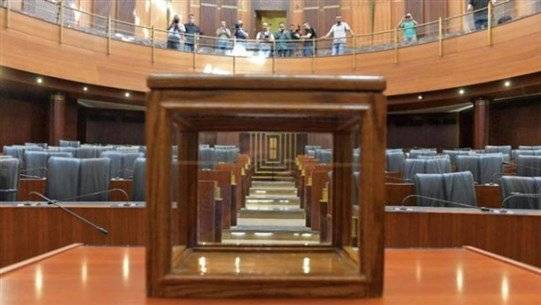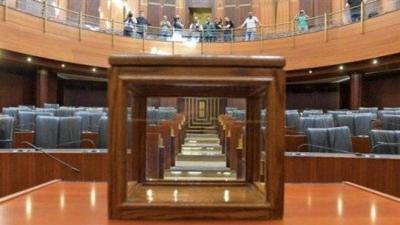The elections for the Deputy Speaker of the House of Representatives and the Bureau of the Council commence today, sparking a battle among political forces, blocs, and independent deputies. The effects of this will extend to next week with the elections for parliamentary committees, which have traditionally been agreed upon by large blocs. However, this is unlikely to recur in the absence of a unified Sunni bloc and amidst political conflicts among Christian forces.
Today's elections are scheduled to occur in three phases. The House of Representatives will hold its first session after its election at the invitation of the oldest member, known as the "President of Age," who is currently President Nabih Berri. The second and third sessions will be chaired by the elected president.
The process begins today with the election of the president, followed by the election of his deputy, where there are three candidates reportedly: Elias Bou Saab (from the Free Patriotic Movement), Ghassan Skaff (supported by the Lebanese Forces), and Mohalm Khalaf (from civil society). The third session is designated for electing the Bureau of the Council, consisting of seven members, including the president and the deputy, according to a long-standing tradition that distributes the seven seats among seven sects.
The Bureau comprises a Speaker (Shia), a Deputy (Orthodox), two secretaries (one Maronite and one Druze), and three commissioners (one Sunni, one Catholic, and one Armenian). They are elected in the third parliamentary session following the elections of the president and his deputy. While the election of the president is expected to proceed with "zero competition," as no Shia deputy will run against Berri for the presidency, sources tracking ongoing communications indicate that the other elections will see competition, especially with at least three Orthodox candidates for the deputy position, including one from the "change forces." Furthermore, another group of candidates will run for the positions of secretaries and commissioners, although competition for the Druze (secretary) or Armenian (commissioner) positions is expected to be minimal, given that the "Progressive Socialist Party" is represented by seven out of eight Druze members in Parliament while the "Tashnag" Party holds a majority in the Armenian delegation (three members) due to the dispersion of others across different blocs.
The "Strong Republic" bloc has held consecutive meetings in recent days to make a decision announced last night. According to "Lebanese Forces" sources, two interdependent conditions were set from the beginning of the discussions: firstly, the supported candidate must have a program and project with suitable qualifications, as stated by deputy candidate Ghassan Skaff. The second condition is that the candidate must have the support of components forming the new pluralistic majority, consisting of representatives from the "Lebanese Forces," "Progressive Socialist Party," "Kataeb," and independent sovereign deputies such as Ashraf Rifi, Ni'mat Afram, Michel Moawad, and Fouad Makhzoumi, in addition to newly independent (change) deputies linked to the uprising, thereby ensuring that the entire group is engaged in a serious campaign reflecting the aspirations of the people who elected them and shifting the majority from one place to another.
In parallel, parliamentary sources told "Asharq Al-Awsat" that the most significant reshuffle lies in the competition for Sunni positions, in the absence of a cohesive bloc similar to the former "Future" bloc, without a single political reference but rather a group of deputies scattered across several blocs. There is also a competing race for the Maronite spot (secretary), which was previously represented by deputy Alain Aoun, a member of the "Strong Lebanon" bloc; however, the Maronite deputies are now distributed across several influential blocs, differing from their representation in the previous Parliament.
The competition will transition from today's session to a more intense rivalry next week during the election of the parliamentary committees. The Lebanese Parliament consists of 17 committees, and their chairpersons and rapporteurs are traditionally distributed among the Lebanese sects. The committees are elected by the Parliament's general assembly, allowing members to elect the chair and the rapporteur from among them.
Each committee is composed of members ranging from 12 to 17, including the president and the rapporteur. A deputy may not be a member of more than two primary committees as a rule, with certain margins and exceptions for membership in committees like "Women and Children," "Information Technology," or "Human Rights." Additionally, one can attend sessions of other committees in which they are not a member.




